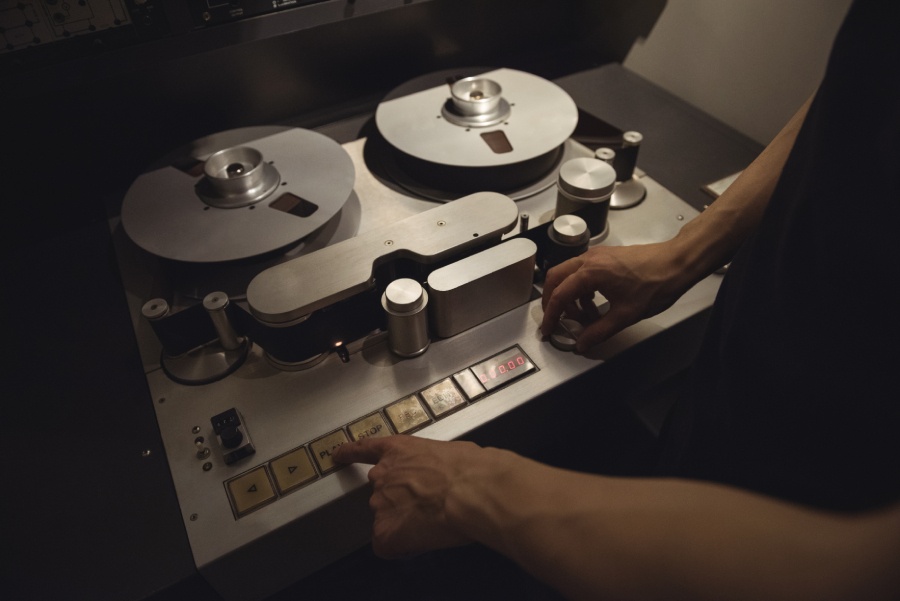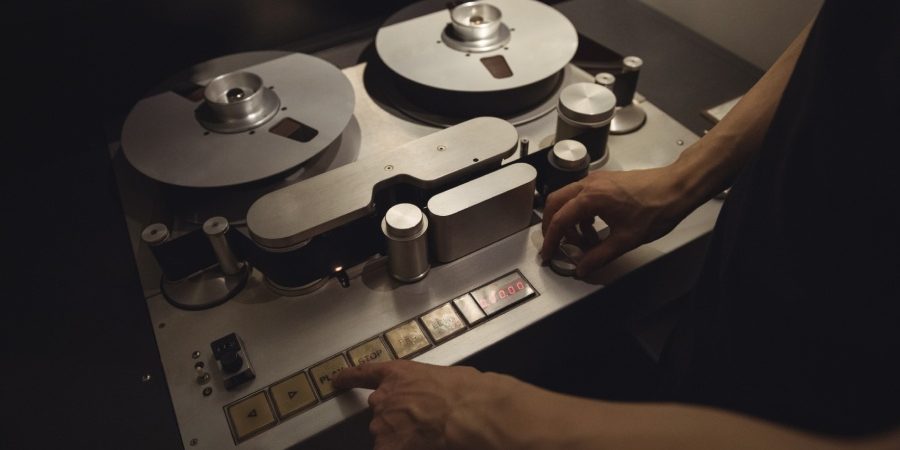Today, there are many opinions about artificial intelligence in our society, from actors like ChatGPT and Lensa to those who want to halt AI research. iZotope has been utilizing AI and machine learning in their workflows since the debut of Neutron in 2016. But how does AI specifically fit into music mastering? We delve deeper into this topic.
The Role of Mastering
Mastering is the final fine-tuning process in music production. A song is composed, recorded, and mixed, and then mastering is applied to ensure that the track sounds ideal across all audio systems, be it studio monitors, headphones, or car radios. This process not only adjusts volume levels but also corrects any frequency issues and achieves a consistent sound across an entire album or EP. Professional mastering also reduces noise, adjusts the stereo width, and enhances track dynamics. It serves as the final quality assurance and ensures that the music meets industry standards before it is released.
What Does Automated Mastering Mean?
Automated mastering uses computer-based methods to efficiently and autonomously carry out typical mastering tasks. These include measures such as level adjustments, EQ tuning for better sonic harmony, and modifications of parameters like compression or saturation. Not all of these procedures necessarily require AI. The developer who creates the algorithm can often guide the processes with their own expertise.
While AI mastering is a form of automated mastering, not every automated procedure necessarily means AI mastering. The success of such a system heavily relies on the developer’s insights. Basic tasks like volume measurement or tonal balance determination might be simple, but how this data is processed significantly influences the final product. With automated systems, there is often an attempt to match measured data with predefined targets, where the target setting is crucial.
Some tools, like Aria or CloudBounce, require the user to define the targets. This presupposes some understanding of mastering requirements. However, these systems offer less insight into the background processes. Other tools use AI to set targets, and often this is one of the most common applications of AI in mastering. Machine learning can significantly assist in genre recognition compared to older methods.
Nonetheless, we should not forget that mastering is more than just audio editing. Let’s look at the different mastering methods and discuss their respective merits.
What Different Audio Mastering Methods Exist?

(c) wavebreakmedia-micro / freepik.com
Mastering is the final step in the music production process and plays a crucial role in the final sound shaping of a track. There are various approaches to how this complex craft can be executed: analog, digital, and hybrid. Each of these approaches has its own advantages and disadvantages, and choosing the right mastering process depends on many factors, including budget, genre, and the specific requirements of the project. In this blog post, we take a look at these three main methods.
Analog Mastering: The Classic Method
Analog mastering is the oldest form of this craft and is often seen as the “classic” approach. It utilizes analog equipment such as equalizers, compressors, and limiters to shape the sound. Often, analog tape reels are also used as the source.
Advantages:
Often provides a warm, organic sound. Experienced mastering engineers can offer the highest level of control and fine-tuning.
Disadvantages:
More expensive, especially due to the maintenance costs of the hardware. Less flexible when it comes to editing and storing projects.

(c) wavebreakmedia-micro / freepik.com
Digital Mastering: The Modern Method
Digital mastering employs software and plugins instead of hardware devices. This offers the flexibility to make various settings and adjustments quickly and easily, and also allows for the use of advanced algorithms for specialized tasks like noise reduction or dynamic adjustment.
Advantages:
More cost-effective and accessible. High flexibility and easy customization.
Disadvantages:
Can sometimes lead to a “sterile” or “lifeless” sound. The quality of plugins and software can vary.
Hybrid Mastering: The Best of Both Worlds
Hybrid mastering combines analog and digital methods to take advantage of the benefits of both approaches. A mastering engineer might, for example, use analog hardware for certain tasks like EQ and compression, and digital software for special effects and fine-tuning.
Advantages:
Combines the warmth of analog hardware with the flexibility of digital software. Offers a wide range of possibilities for sound shaping.
Disadvantages:
Can be expensive, as both analog and digital tools are required. Requires a high level of expertise to effectively combine the different elements.
For a better understanding, we have divided the various mastering techniques into two questions:
Who or what is responsible for mastering and what tools are used in the process?
Although the answer to the first question should be fairly clear, we distinguish between human mastering engineers and automated mastering systems. Both approaches offer their own advantages. For some artists, like a songwriter who wants to release a demo or a DJ who needs a quickly edited version for a show, automated mastering may be a time-saving and cost-effective option.
However, there are certain areas where automated systems reach their limits—this is where human mastering engineers shine. As already noted, mastering is not just about pure audio editing. An important aspect is the final quality check to ensure that no unwanted noise, such as distortions or pops, occurs. Occasionally, such effects might be intentional, and human judgment is often essential in assessing this.
Additional points where human mastering engineers have an advantage over automated systems include: determining the order of songs, gaps, timing, the beginning and end of tracks; creating identical masters for different versions like instrumental versions; direct communication to consider mix peculiarities; adjustments based on feedback; and of course, leveraging the engineer’s knowledge, intuition, and finesse to get the most out of the song.
Does Online Mastering Make Sense?
Online mastering services can be particularly attractive for indie artists and small productions due to their speed, convenience, and cost-efficiency. They offer a standardized solution for basic mastering tasks and are therefore ideal for demos, preview versions, or projects with limited budgets. However, they should not be viewed as a replacement for professional mastering by an experienced audio engineer, especially when it comes to commercial releases. While automated online tools can handle certain technical aspects, they lack the creative input and nuanced ear of a professional who analyzes the material in a specially designed acoustic space. Therefore, online mastering makes sense in specific contexts, but should not be considered a full-fledged alternative to traditional mastering methods.
Mastering by an Audio Engineer vs. Online Mastering
Pros and Cons of Online Mastering:
| Pros of Online Mastering | Cons of Online Mastering |
|---|---|
| Convenience | Limited Control |
| Cost-Efficiency | Quality Differences |
| Speed | Lack of Artistic Insight |
| Consistency | Flexibility |
Pros and Cons of Mastering by an Audio Engineer:
| Pros of Mastering by an Audio Engineer | Cons of Mastering by an Audio Engineer |
|---|---|
| Personal Communication and Customization Possible | Higher Costs Compared to Online Mastering |
| Patient Fine-Tuning for Best Results | Longer Processing Times |
| Individual Adjustments for Different Tracks | Potential Scheduling Conflicts |
| Influence of the Audio Engineer on the Overall Sound | Dependency on the Engineer’s Skills |
What About AI in Mastering?
Through machine learning and complex algorithms, AI systems can already perform a range of mastering tasks that were previously only managed by human engineers. These tools can be particularly useful for demos, quick productions, or as learning tools for aspiring audio engineers. However, it should be emphasized that AI mastering—despite its advancements—still lacks the ability to fully replace the nuances and creative input of an experienced human mastering engineer. For high-quality, commercial releases, it is generally advisable to rely on the expertise and intuition of a professional engineer. Nevertheless, AI offers an exciting complement to traditional mastering and has the potential to further revolutionize the process in the future.
Is Ozone Better Than Online Mastering?
Ozone takes a lot of work off your hands while also giving you the opportunity to edit all the nuances in detail. This can happen at various levels: through genre selection and macro controls in the Master Assistant, you can already fine-tune your master quite precisely. If you wish, you can delve deeper and fine-tune each individual component in the module view.

(c) iZotope’s Ozone 10
Working with alternative mix versions, revisions, and other adjustments is incredibly easy. Want to master an instrumental version? With Ozone, you simply copy the settings from the main mix and apply them.
The Master Assistant also serves as a learning platform. You can review the modules and settings used, isolate or turn off individual modules, and thus understand how specific adjustments affect your music. It’s an ideal starting point for experimentation to find out how small tweaks, such as in EQ or compression, affect the overall sound. Start with AI-Assisted Mastering
Start with AI-supported Mastering.
With Ozone, you’ll experience a transparent and open approach to AI-assisted mastering that still gives you full control over your project. Automated mastering can be the perfect choice if you need a version quickly, and with Master Assistant in Ozone, you have precisely that option. For more advanced mastering purposes, whether for streaming, DJ performances, or other uses, Ozone allows you to take all the details into your own hands. Try it out for yourself by downloading a free demo version directly from iZotope.
About iZotope
iZotope, a pioneer and expert in advanced audio technologies since 2001, specializes in enabling producers, musicians, and audio engineers to focus on their art rather than the underlying technology. iZotope’s award-winning software solutions, plugins, mobile applications, and hardware products impress with their intuitive user interfaces. As of 2023, iZotope became part of the consortium with Brainworx and Plugin Alliance under the umbrella of Native Instruments.






